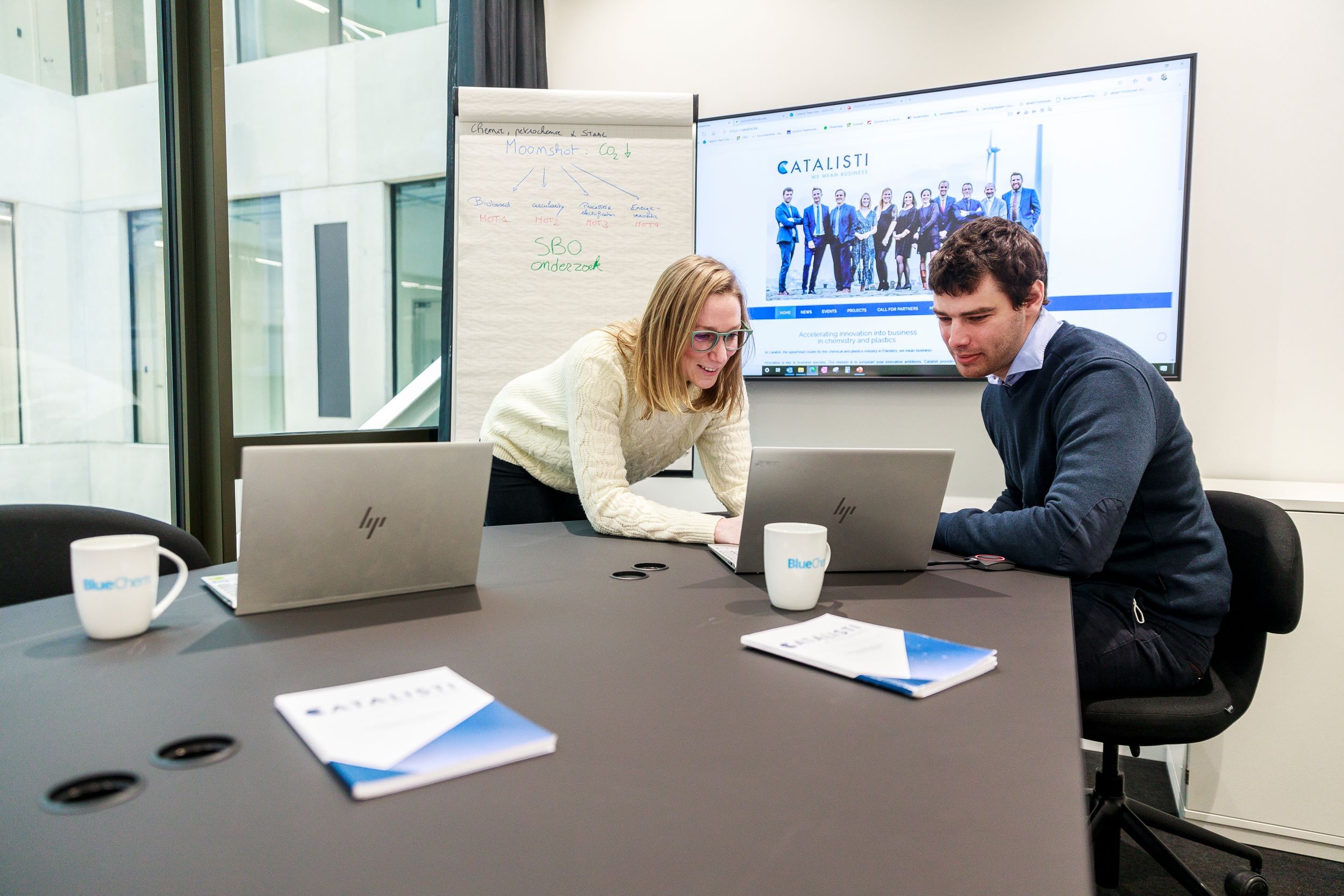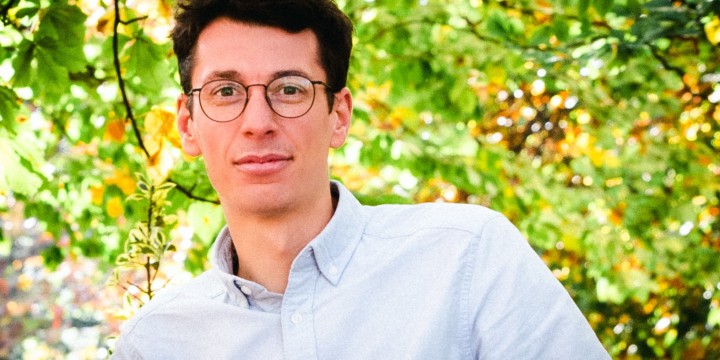
Expert Talks #4
Expert Talks #4: Environmental Biotechnology, the key to sustainability
November 2021

Tobias Wilms, Life Sciences Advisor at BNP Parisbas Fortis
BlueChem is the first incubator in Belgium with an explicit focus on innovation and entrepreneurship in the field of sustainable chemistry. Startups and scale-ups within the BlueChem incubator are supported in their development by strategic partners such as BNP Paribas Fortis. Tobias Wilms holds a PhD in biochemistry and works as a Life Sciences Advisor at BNP Paribas Fortis. As a strategic partner, BNP Paribas Fortis wants to assist start-ups and scale-ups in their search for investors, in setting up their business structures and in addition act as an investor for sustainable developments.
Within BlueChem, a number of startups are also committed to the pursuit of sustainable improvements in their fields and these ventures can be supported by BNP Paribas Fortis. The bank offers start-ups access to its extensive network, helps to structure the financing of the project and can provide input on the business plan.
Life Sciences Advisor at BNP Paribas Fortis, Tobias Wilms explains: “Nowadays, a considerable focus is put upon ‘Environmental Biotechnology’, which investigates how agriculture can be made more sustainable. Currently we must recognize that producing food is ecologically harmful, having a major impact on the environment. We still see that chemical pesticides are being used to protect crops. These pesticides are harmful to the environment and the biodiversity, and that’s why they are increasingly banned. As a result, to keep food production going, alternatives are needed!”
European Green Deal
It is a pursuit that perfectly fits into the framework of the ‘European Green Deal’, a plan introduced by the European Commission to make the European Union climate neutral by 2050. This means that net-zero greenhouse gas emission has to be obtained. What is nevertheless emitted by 2050 must be captured or immediately compensated. “The big issue within the food sector now is how to make the transition to a sustainable food system, while maintaining sufficient food production,” Tobias adds. The pursuit for sustainable and organic alternatives is in full swing.
Soy products
Calidris Bio, a startup in BlueChem, investigates fermentation technology to be used for the production of a high-quality protein source with a low ecological footprint based on captured CO2 and renewable energy. With this innovation, the start-up aims to develop an alternative for the current environmentally harmful protein-rich products such as soy. “If such protein-rich foods can be replaced by sustainably produced alternatives, the emission of greenhouse gases will be reduced considerably. Moreover, Calidris Bio focuses on fermentation using micro-organisms to produce proteins and as a result capturing CO2 from the air. So it’s a win-win situation,” Tobias explains. “As a bank, we are looking at how we can support Calidris Bio and other startups in order to contribute in building a sustainable world.”
Meat from the lab
Peace of Meat, another company in the BlueChem incubator, is developing a platform for sustainable meat production. “Cattle emit a huge amount of methane, occupy acres of land and need loads of fodder. That is why the meat industry is such a huge polluter. Producing cultured meat in a laboratory can significantly reduce the meat industry’s ecological footprint. But it will still take a while before we eat steaks coming from a laboratory. We presume that it will not be the case for another ten years or so, but we are determined to offer the labs all the help and resources they need to make it work”.